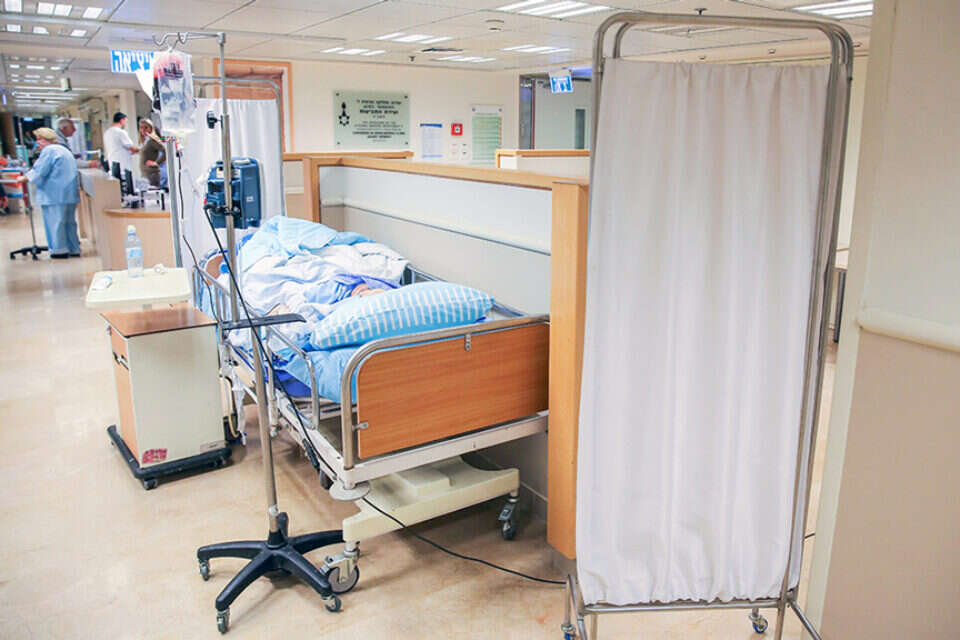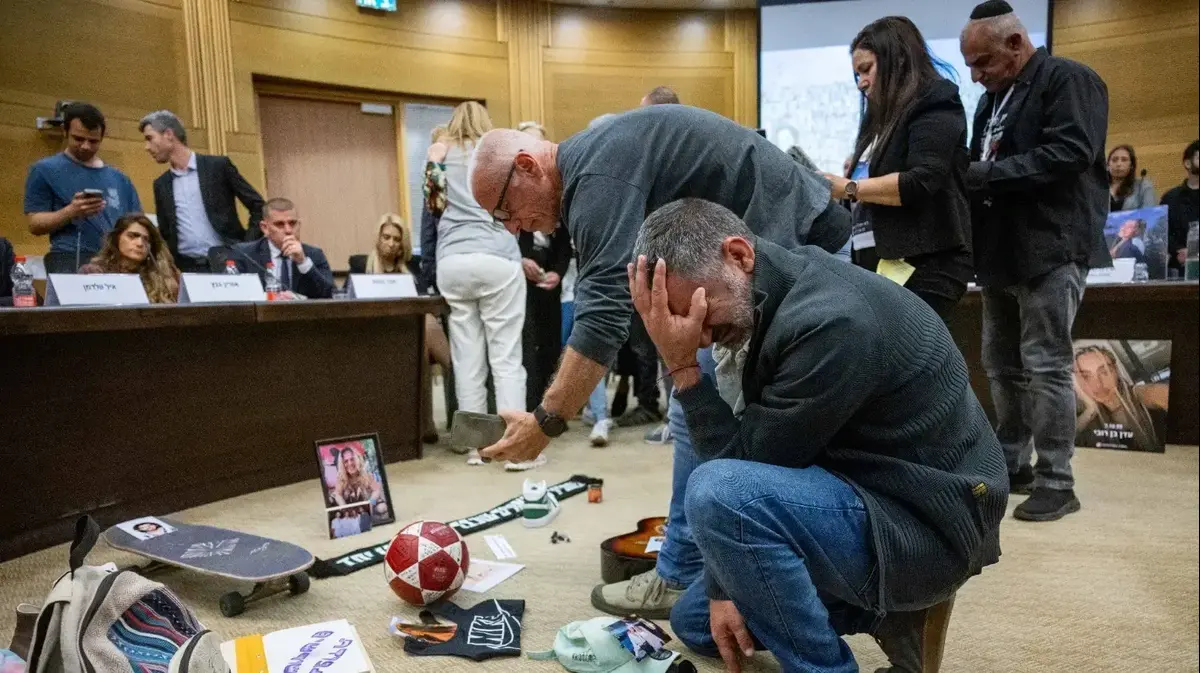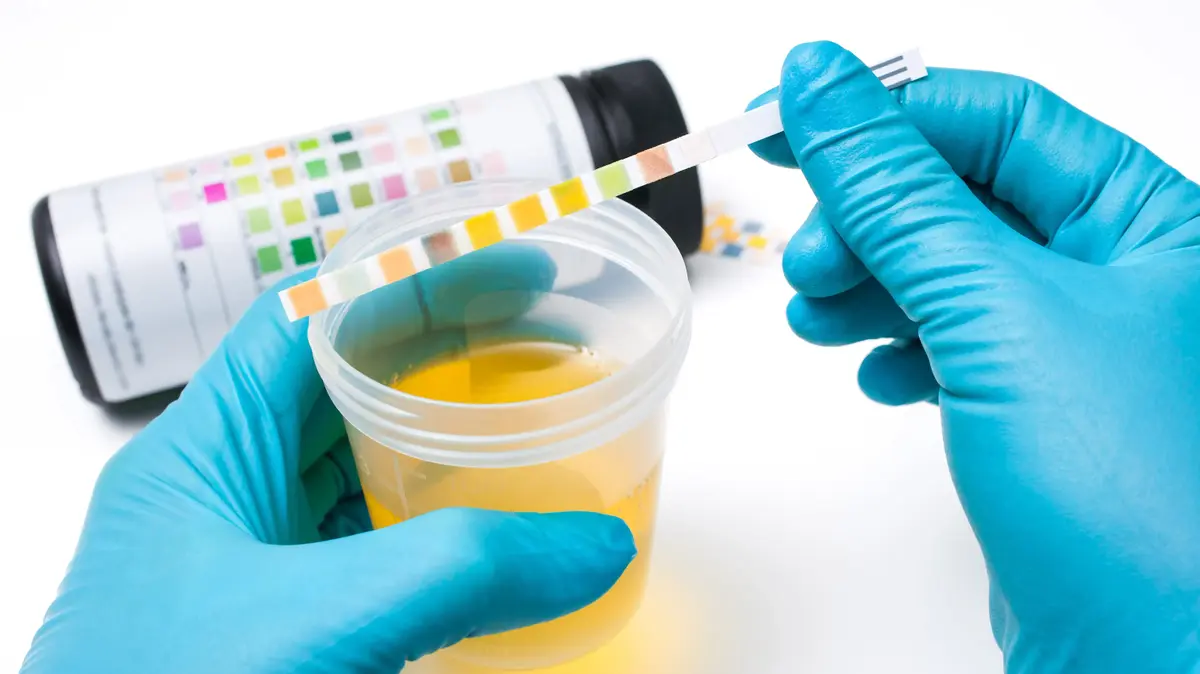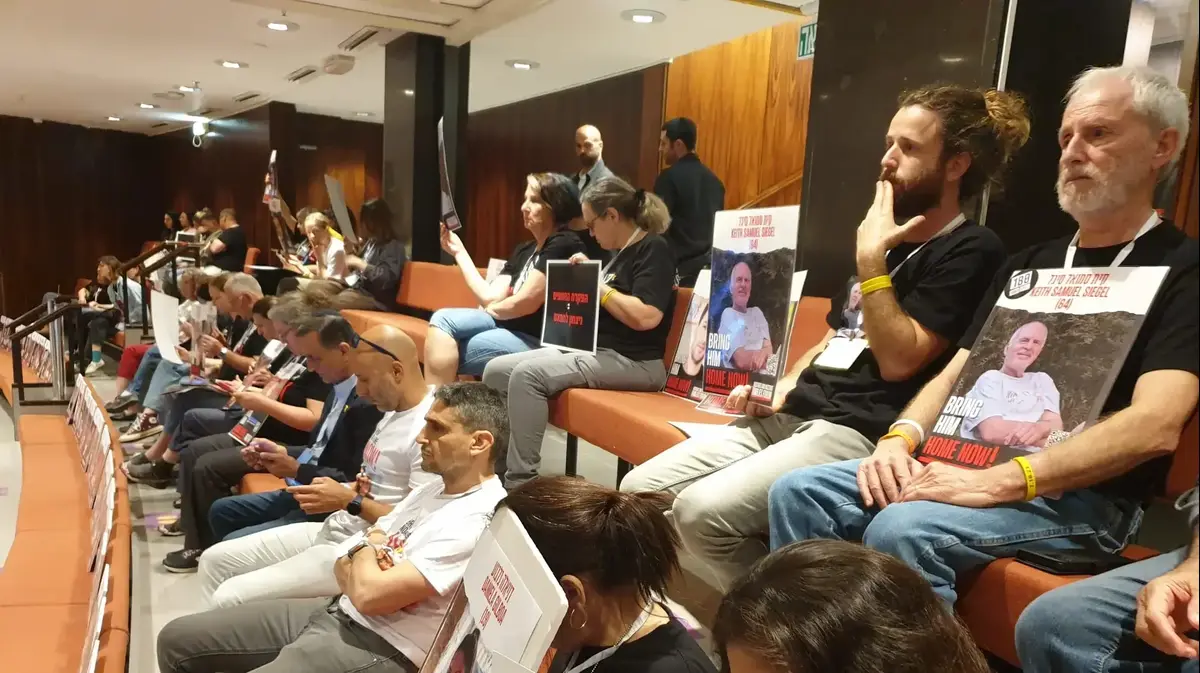Thousands of patients a year are forced not to purchase essential medicines, some of which save lives, even though they are included in the basket and budgeted by the state. The reason: The financial difficulty prevents them from paying the deductible that the health funds charge them.
Although the sum ranges from tens to 400 shekels a month, many patients are unable to afford even this expense. Some families are forced to choose between buying medicine and food. In some cases, there are several chronically ill people in the family, which can increase the monthly expenses to more than NIS 1,000.
The public discourse on the cost of living misses, in a sense, the health distress of thousands of Israelis. Data revealed here for the first time show that the wave of price increases has a real impact on the health of many chronically ill patients, including children and the elderly.
Nadav Sagi, a single father who pays for medication for his children, photo: Gil Eliyahu/Ginny
Doctors estimate that in some cases the cost of living also increases the lives of patients, whom the drugs could have saved, or at least prolonged, and prevented them from suffering greatly.
These figures do not include the very expensive drugs, which are not included in the basket. These drugs, which can cost tens of thousands of shekels a month, are impossible for low-income people to purchase. Many of them don't even have private health insurance, at a cost of a few hundred shekels, that can provide expensive medication when needed. This fact exacerbates the problem even more.
This is compounded by a particularly absurd situation: while the patient does not receive the drug intended for him in the basket from the health fund, the health plan will in any case receive the budget for that drug from the state. The money will come within the budgeting of the state drug basket, regardless of whether the patient purchased the drug or not.
In practice, the state budgets billions of shekels a year for the basket of drugs, but thousands of Israelis are still unable to receive the necessary treatment due to economic difficulties. Moreover, there are discounts on deductibles, based on age, financial status, and a limited number of serious illnesses, but most patients do not meet these definitions.
Shoshana Zeig, who suffers from several chronic diseases, finds it difficult to afford the medications from the basket alone, Photo: Yossi Zeliger
The data are based on information from patient associations, headed by Friends of Medicine, an organization that helps finance medicines for about 7,000 patients who receive support from welfare authorities.
According to data from Friends of Medicine, which operates from its offices in Bnei Brak, it receives dozens of new calls a day from patients who cannot afford medication. Some come from social workers, others from hospitals and local authorities.
According to the heads of the association, they are struggling to keep up with the load and see how the cost of living has exacerbated the hardship in recent weeks. A week ago, the heads of the association, CEO Baruch Lieberman and Deputy Director General Shira Kalfon, met with Health and Interior Minister Moshe Arbel and Ministry Director General Moshe Bar Siman Tov. They presented them with the problem, and asked that together with the Ministry of Finance and the health funds, budgetary and legal solutions to the problem be urgently adopted.
The difficulties are increasing
One of the patients struggling to finance is Shoshana Zeig, 71, from Petah Tikva. Zeig is a pensioner who lives on old-age and survivor's allowances, and due to her health condition is unable to work.
Shoshana deals with several diseases, including heart disease, and recently began receiving an expensive biological drug included in the basket. However, the deductible she has to pay to Clalit Health Services is NIS 350. As a result, the district social worker turned to "medical friends" and noted, "Due to her low income, she has difficulty paying for medication and needs your help."
Tamar Dadon, whose children suffer from the disease: "We live in fear that we will not be able to pay for the drug", Photo: Jonathan Shaul
Nadav Sagi, 39, from Yavne'el in the north, is a single father raising his four children, aged 7 to 14. Two of his children, Yehonatan and Hudia, had growth difficulties, and for growth hormone drugs, which are included in the basket, he had to pay NIS 320 per child each month. Since he is the sole breadwinner for his family, and because of his financial situation, the Department of Social Services in Yavne'el turned to the "Friends of Medicine" association for help in financing the deductible.
Israel Hayom has learned that there are dozens of other children in a similar situation whose parents find it difficult to afford the essential growth hormone drug included in the basket. According to Nadav, "In recent months, the cost of living has only made the situation much more difficult, so we have to give up basic expenses for the family and children in order to purchase the medicines. I had hoped that the government would act on this issue, but it didn't happen at all."
"Crazy cost of living"
Tamar and Amos Dadon from Beit Shemesh pay the health fund about NIS 4,200 each quarter for the expensive drugs for the disease in which four of their six children are diagnosed, in addition to the additional drugs for other family members.
This is the hereditary disease CTX, which can cause cumulative physical and brain injury, up to life threatening. However, the disease has a life-saving drug included in the basket, which has managed to halt the rate of damage formation. Due to the high financial burden on the family, the doctors at the Center for Clinical Genetics at Hadassah Hospital in Jerusalem, where the children are treated, wrote that they wanted to help them pay for the drug included in the basket.
According to Tamar Dadon, "Life has become much more expensive. We live in constant fear, and the monthly cost of medication is very burdensome. I'm afraid there might be a situation where we won't be able to fund it."
Baruch Lieberman, CEO of Friends of Medicine: "Without our help, patients will be left without treatment. It is inconceivable for a patient to give up medicine because he has no money," Photo: Coco
A.D., 56, from the central region, has been dealing with psoriasis for about 12 years. She has been undergoing biological therapy for three years and is a member of the Israeli Psoriasis Society. "The cost of living in Israel is crazy and illogical, and it costs me my health," she says. "I can't afford the biologic drug, even though I need it badly, because I don't even have the money to pay the deductible. That's why I have to give up treatment. As a result, my health worsened, and I had an outbreak of the disease all over my body as before starting treatment. In order to return to biological treatment, I had to sell my car, because I had no other choice."
D.S., 58, from the northern region, has been battling vertebral inflammation and other complex diseases for more than two decades. He lives on a disability pension and rental assistance and is a member of the "Young Liquidators" association.
"The crazy cost of living is costing me my health, and it doesn't allow me to buy all the regular medications now," he says. "Moreover, I have to pay for the vaccines I need, even though they are in the basket. I have to give up treatments and medication, and my health is getting worse."
L., 33, from the northern region, has been battling Mediterranean fever and fibromyalgia for several years. He is also a member of the Young Joints Association. "I live on income support right now," he says. "I rely on parental support. Because of the crazy cost of living in Israel, and because I can't work for a living, I have to forgo treatments and medication because of the deductible, and my health condition worsens."
H., 32, from the southern region, is coping with active Crohn's disease. She had to forgo biological medication due to difficulty paying co-payments to the health fund, which worsened her condition.
H. shared her difficulty with the Association for the Support of Crohn's and Colitis Patients. According to her, "The disease broke out in me a year and two months ago. By profession I am a therapeutic riding instructor, but because of the illness I had to stop working in the field. My health prevented me from doing so, and they gave me a one-year disability rate due to loss of work capacity."
"Resources are limited"
"The organization turns to patients who need expensive drugs that are not included in the basket, but many ask for drugs that are included in the basket for them," says Baruch Lieberman, CEO and founder of Friends of Medicine.
He notes that applicants suffer from a number of departments such as arthritis, psoriasis, intestinal infections, rare genetic diseases, asthma, mental illnesses and more.
A.D., who suffers from psoriasis: "I had an outbreak of the disease all over my body. To go back to biological treatment, I had to sell my car. I had no choice."
"Without our help, patients will be left without treatment and face suffering, hospitalization and even life-threatening conditions," Lieberman adds. "It's agonizing to receive referrals from patients and parents of sick children, knowing that the NIS 1,000 they can't raise separates them from life-saving treatment, which they are entitled to in the health basket. The organization's resources are limited. We can't replace the country."
Lieberman hopes that decision makers will nevertheless find a budget and solutions soon, and promises to voice the cry of the sick. "It is inconceivable for a patient to give up a drug because he has no money to buy it."
Shira Kalfon, the organization's deputy director general and responsible for fundraising for patients, says: "Since COVID-19, as the cost of living increases, we have experienced a steep increase in requests and difficulties in fundraising. About a month ago, a doctor from a medical center called me and told me that a patient in the ward was suffering from an attack of severe colitis - an inflammatory bowel disease, but that he could not be discharged because he could not pay the quarterly amount to purchase the drug. We tried to help him, but it turned out that there were ten other patients who wanted to use the drug. I couldn't help him, just like I couldn't help them.
"Finally, I contacted the Crohn's and Colitis Patients Association, and they agreed to help him. At Friends of Medicine, we succeed in helping on a huge scale, but we cannot replace the state, and patients do not have to be bankrupt in order to receive the treatment they deserve from the basket."
The Health Ministry said, "Work is being carried out in the ministry on the matter. The Ministry periodically examines the various options for facilitating co-payments for the chronically ill and examining budgetary sources for financing these reliefs."
Wrong? We'll fix it! If you find a mistake in the article, please share with us



/cloudfront-eu-central-1.images.arcpublishing.com/prisa/SOFY3H6XYZCWXCQ5WDUPWDXBKA.jpg)





